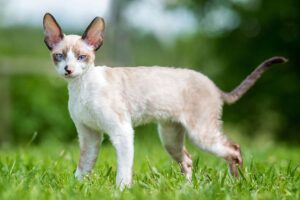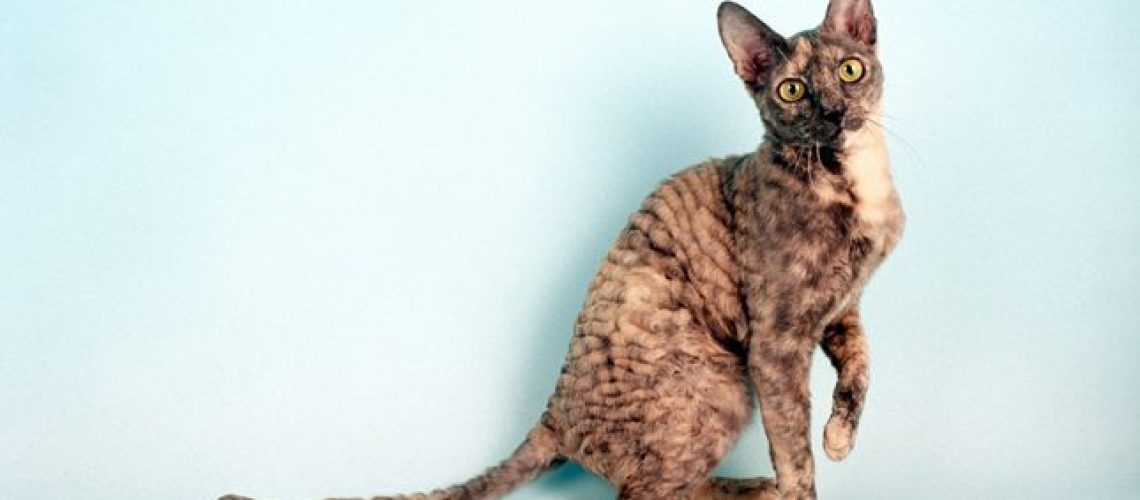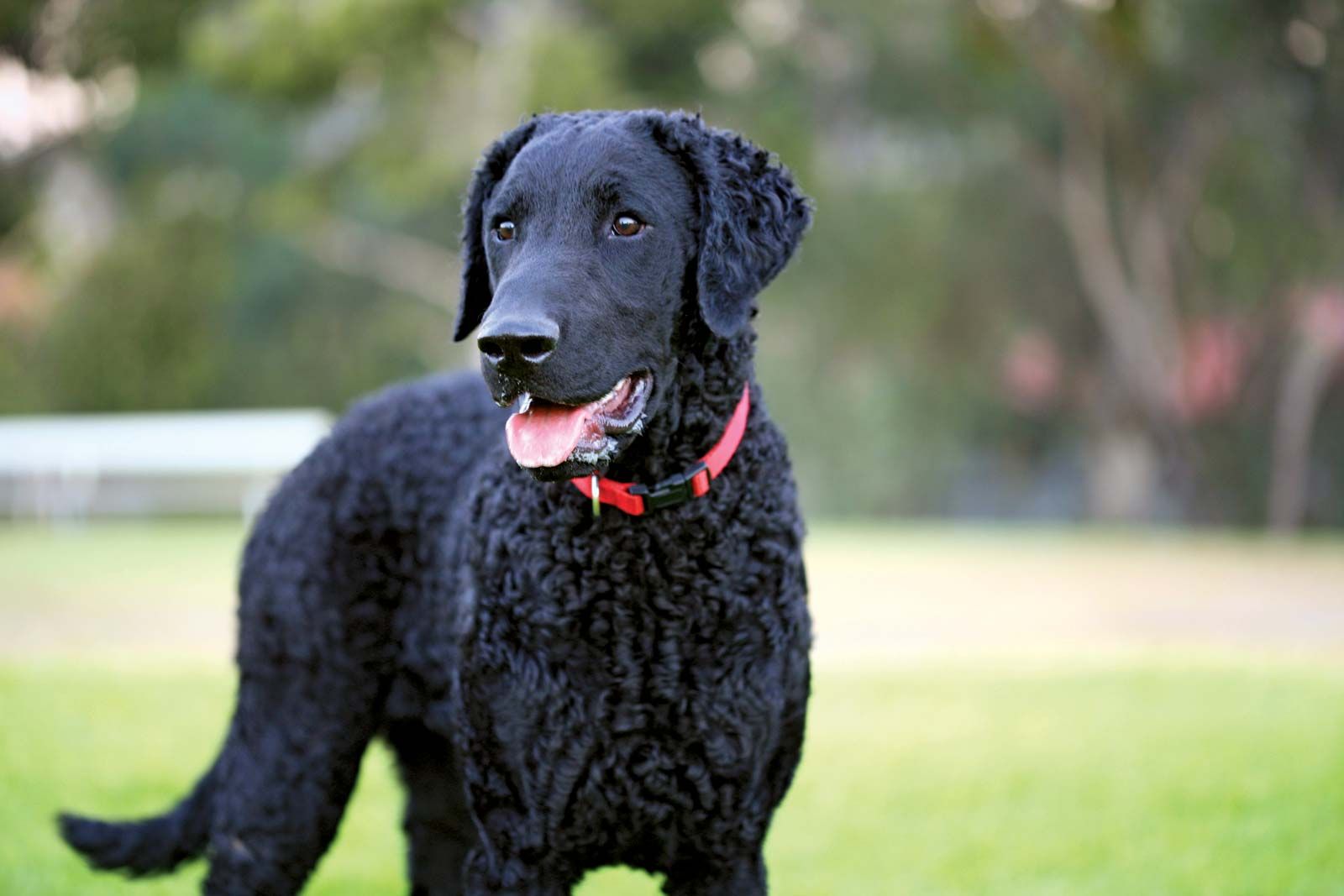This enchanting topic is not only fascinating but also holds immense value for anyone interested in feline companionship. Understanding the unique qualities of Cornish Rex cats can help you appreciate their beauty and charm on a whole new level. Brace yourself for an adventure filled with delightful surprises and heartwarming moments that will leave you wanting more. Welcome to the wonderful world of Cornish Rex cats: Waves, Curls, and Endless Cuddles!
Key Takeaways:
- Cornish Rex cats have a unique curly coat that sets them apart from other breeds.
- They are known for their playful and energetic nature.
- Cornish Rex cats are highly intelligent and can easily learn tricks and commands.
- They require regular grooming to maintain their soft and curly coat.
- These cats are affectionate and love to cuddle with their owners.
What is a Cornish Rex cat and what makes it special?
Definition of a Cornish Rex cat
A Cornish Rex cat is a unique breed known for its curly, soft, and wavy fur. It is different from other cats because of its unusual coat texture and appearance. These cats have slender bodies, long legs, and large ears that make them stand out in a crowd.
Special qualities of the Cornish Rex cat
One special quality of the Cornish Rex cat is that it has an extremely friendly and affectionate nature. They love to be around people and are often described as "lap cats" because they enjoy cuddling with their owners. Another special thing about these cats is their intelligence. They are quick learners and can easily be trained to do tricks or use a litter box.
The unique coat of the Cornish Rex cat sets it apart from other breeds. While most cats have straight fur, the Cornish Rex has hair that is curly or wavy all over its body. This curly coat gives them a distinct look and makes them even more adorable.
Overall, the combination of their friendly personality, high intelligence, and unique appearance makes the Cornish Rex cat truly special and beloved by many cat enthusiasts.

The origin story of the Cornish Rex cat breed
The discovery of the first Cornish Rex kitten
The story of how the Cornish Rex breed came to be begins with a little kitten named Kallibunker. In 1950, on a farm in Cornwall, England, a litter of kittens was born to a barn cat named Serena. Among her litter was one kitten who stood out from the rest - Kallibunker had short, curly fur instead of the usual straight fur like his siblings.
The breeding experiments
Kallibunker's unique coat caught the attention of a local cat enthusiast named Nina Ennismore. She decided to breed him with his mother Serena and discovered that the curly fur trait was passed down to the next generation. This was the start of a breeding program to develop the Cornish Rex breed.
Over time, Kallibunker's descendants were bred with other cats, including Siamese and Burmese breeds, to strengthen and refine the breed. Through careful selection and breeding, the Cornish Rex cat became more established and gained recognition as a distinct breed.
Today, Cornish Rex cats can be found all around the world, thanks to the efforts of dedicated breeders who have preserved and developed this unique and beloved feline breed.
What does a Cornish Rex cat look like?
Physical features of a Cornish Rex cat
Cornish Rex cats have some distinctive physical features that set them apart from other breeds. They have slender bodies with long legs, giving them an elegant appearance. Their heads are wedge-shaped, with high cheekbones and large ears that are set wide apart.
Their eyes
Their eyes are large and oval-shaped, usually ranging in color from green to gold. These expressive eyes give them an alert and curious look.
Their coat
The most notable feature of a Cornish Rex cat is their coat. Instead of having straight fur like most cats, their hair is curly or wavy all over their body. The curls are tight and close to their skin, creating a soft and plush texture. The coat comes in various colors and patterns, including solid colors like black or white, as well as tabby or tortoiseshell patterns.
Overall, the combination of their sleek bodies, wedge-shaped heads, large ears, expressive eyes, and curly coats make Cornish Rex cats truly unique and eye-catching.
The unique coat of a Cornish Rex cat
The coat of a Cornish Rex cat is one of its most distinctive features. Unlike other cats, their fur is curly and soft to the touch. This unique coat is caused by a genetic mutation that affects the structure of their hair follicles. The hairs are shorter than those of other cats and have a wavy or crimped appearance. This gives the Cornish Rex a velvety texture that many people find irresistible.
Why do Cornish Rex cats have curly fur?
The curly fur of Cornish Rex cats is the result of a natural genetic mutation. Unlike other breeds, their hair shafts are oval-shaped instead of round. This causes the hairs to curl as they grow, giving them their unique appearance. The gene responsible for this mutation is recessive, which means both parents must carry it for their kittens to have curly fur.
What colors can a Cornish Rex cat's coat be?
Cornish Rex cats can come in a wide variety of colors and patterns. They can have solid coats in colors such as black, white, cream, or red. They can also have tabby patterns, where their fur has stripes or spots in different shades. Additionally, some Cornish Rex cats may have tortoiseshell or calico patterns, which combine multiple colors in patches on their coat.
Overall, the unique coat of a Cornish Rex cat sets them apart from other breeds and makes them visually striking pets to have.
Health concerns for Cornish Rex cats
While Cornish Rex cats are generally healthy and robust animals, there are certain health concerns that potential owners should be aware of.
Hypertrophic Cardiomyopathy (HCM)
One common health issue seen in Cornish Rex cats is hypertrophic cardiomyopathy (HCM). This is a heart condition where the walls of the heart become thickened, making it harder for the heart to pump blood effectively. Regular veterinary check-ups and screenings are essential to monitor the cat's heart health and detect any signs of HCM early.
Heat sensitivity
Cornish Rex cats have a higher body temperature than other breeds, which makes them more sensitive to heat. They should be kept in a cool environment and provided with plenty of fresh water to prevent overheating. It's important to avoid exposing them to direct sunlight or leaving them in hot rooms for extended periods.
Other potential health concerns
In addition to HCM and heat sensitivity, Cornish Rex cats may also be prone to certain skin conditions, such as dry skin or dermatitis. Regular grooming and moisturizing can help alleviate these issues. Additionally, they may have a higher risk of developing respiratory infections due to their slender build and delicate immune system.
By being aware of these potential health concerns and taking appropriate measures, owners can ensure that their Cornish Rex cats lead happy and healthy lives.
How do Cornish Rex cats behave compared to other breeds?
Cornish Rex cats have unique behavioral traits that set them apart from other cat breeds. They are known for their playful and active nature, often engaging in acrobatic feats around the house. These cats love climbing on furniture, jumping onto high surfaces, and exploring every nook and cranny.
Curious and intelligent
Cornish Rex cats are highly curious animals with an innate sense of adventure. They enjoy investigating new objects or spaces in their environment. Their intelligence allows them to quickly learn new tricks or solve puzzles designed for feline enrichment.
Affectionate companions
Despite their energetic nature, Cornish Rex cats are also incredibly affectionate. They form strong bonds with their owners and enjoy being close to them. These cats are often described as "velcro cats" because they like to stick by their human's side, following them from room to room.
Compatibility with other pets
Cornish Rex cats generally get along well with other pets, including dogs and other cats. Their friendly and sociable nature makes them adaptable to different household dynamics. However, it's important to introduce new pets gradually and provide proper socialization to ensure a harmonious coexistence.
Overall, Cornish Rex cats are lively, intelligent, and loving companions that bring joy and entertainment to their owners' lives.
Caring for a Cornish Rex cat's coat
Caring for a Cornish Rex cat's unique coat requires some special attention. Despite its curly appearance, their fur is relatively low-maintenance compared to other long-haired breeds.
Gentle grooming
Cornish Rex cats have delicate skin that can be easily irritated by harsh brushing or excessive grooming. It is recommended to use a soft brush or even just your hands to gently remove loose hairs and keep their coat in good condition. Regular grooming sessions also help distribute the natural oils on their skin, keeping it healthy and moisturized.
Bathing routine
Due to the texture of their fur, Cornish Rex cats may produce more oil than other breeds. This can result in greasy or dirty-looking fur if not properly managed. Regular baths using a mild cat shampoo can help keep their coat clean and prevent any buildup of oils or dirt.
Protecting the coat from environmental factors
Cornish Rex cats should be kept indoors as much as possible to protect their sensitive skin from sunburn or exposure to extreme weather conditions. If they do spend time outside, it's essential to apply pet-safe sunscreen to their ears, nose, and any exposed skin to prevent sun damage.
By following these grooming and care tips, owners can ensure that their Cornish Rex cat's coat remains healthy, soft, and beautiful.
Finding a Cornish Rex cat to adopt as a pet
If you're interested in adopting a Cornish Rex cat as a pet, there are several avenues you can explore to find one that suits your preferences.
Local animal shelters or rescue organizations
Start by checking with local animal shelters or rescue organizations. They may have Cornish Rex cats available for adoption. These cats are often in need of loving homes and can make wonderful companions.
Breed-specific rescue groups
There are also breed-specific rescue groups dedicated to finding homes for specific breeds, including Cornish Rex cats. These organizations specialize in rescuing and rehoming cats of a particular breed and can provide valuable information about the breed's characteristics and care requirements.
Reputable breeders
If you prefer getting a kitten from a breeder, it's important to do thorough research to find reputable breeders who prioritize the health and well-being of their cats. Look for breeders who are registered with recognized cat breeding associations and who provide proper documentation for their kittens' lineage and health records.
Online platforms
There are also online platforms where individuals may advertise Cornish Rex cats for adoption. However, exercise caution when using these platforms and ensure that you thoroughly vet the seller or adopter before making any commitments.
By exploring these options, you can increase your chances of finding a Cornish Rex cat that will become a beloved member of your family.
In conclusion, Cornish Rex cats are unique and adorable pets with their wavy curls and affectionate nature. They make great companions for those looking for endless cuddles and a loving feline friend.
Do Cornish Rex like to cuddle?
Cornish Rex cats have a striking resemblance to mischievous creatures called Cornish Pixies. They have large ears, playful faces, and often engage in naughty behavior. Although Cornish Rex cats are always active, they will make time for cuddling if you become their favorite human.
Are Cornish Rex cats clingy?
Cornish Rex cats are friendly and inquisitive pets who are sociable with everyone. They are loving and enjoy the company of children and other animals. However, because they crave attention from their owners, they do not thrive when left alone for extended periods of time.
Why does the Cornish Rex have a wavy coat?
The Cornish Rex's unique coat is not the result of a stylist trying out a new hairstyle. Instead, it is a natural mutation that occurred spontaneously, which is not unusual in the cat world.
Is Cornish Rex a lap cat?
The Cornish Rex is a breed of cat that loves to be near their owners and will sit in anyone's lap. They are friendly towards other animals and are great pets for children. They enjoy being active and need ample space to run and climb. Additionally, they enjoy spending time outdoors, whether it be in a fenced area or in the garden.
What cat is super clingy?
Certain cats have a natural tendency to be very attached to their owners, with specific purebred cat breeds like the Siamese and Abyssinian being particularly known for their clingy nature. However, in certain situations, clinginess can indicate an underlying issue with your cat, so it is crucial to be aware of what might be causing this behavior.
What are the cons of the Cornish Rex?
It is crucial for Cornish rex owners to make sure their cats are kept indoors. Because of their unique fur coat, this breed is highly vulnerable to hypothermia in cold or wet temperatures and can also overheat in warmer temperatures. Therefore, it is best for a Cornish rex to live exclusively indoors.

















